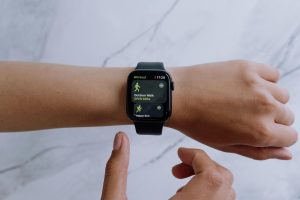As the focus of healthcare shifts towards preventing illness rather than merely treating it, the inclusion of preventative care in health insurance policies becomes increasingly essential for maintaining public health and managing costs effectively. As societies across Asia grapple with the dual challenges of aging populations and the rising prevalence of chronic diseases, health insurance providers are increasingly recognizing the value of integrating preventative care strategies into their policies. This approach not only addresses the immediate health needs of individuals but also mitigates long-term healthcare costs and improves overall community well-being. People strive to balance their professional and personal lives – As they do that, the need for comprehensive health insurance coverage becomes apparent. However, the fact that individuals frequently wait until an emergency happens instead of protecting their health and wellness in advance is quite worrying. What’s more, unfortunately, many people are waiting until they become very sick prior to looking for treatment.
This article delves into the importance of preventative care within the health insurance industry, exploring how strategic investments in health management and digital innovations are shaping a new era of healthcare that prioritizes holistic well-being and preventive measures. Additionally, Arjan Toor, CEO at Cigna Europe, tells us why health insurers must improve the quality of the things they are doing when it comes to proactively protecting their members.
The Importance of Preventative Care
Preventative health care is essential as it focuses on maintaining wellness before health issues arise. It’s about more than just visiting your doctor when you feel ill; it involves a series of health checks and screenings that help catch potential health issues early, when they are most treatable. This proactive approach can significantly lower health care costs by preventing diseases and detecting health problems early. Learn more about preventative care here.
Preventative Care in Asia
In Asia, health insurance coverage for preventive services can vary significantly between countries. For example, Japan has a well-established system that offers regular health check-ups and screenings as part of its national health insurance plan. Similarly, countries like Singapore include vaccinations and screenings for chronic diseases under their MediShield Life scheme, a basic health insurance plan that helps citizens cope with large hospital bills and selected costly outpatient treatments.
Examples of Preventative Care
- Annual Health Checkups: These often include screenings for high blood pressure, cholesterol, and other potential issues. These are often encouraged by national health programs, particularly in countries like South Korea and Taiwan, where annual or biennial screenings are provided at little to no cost to the insured.
- Cancer Screenings: Screenings for diseases like breast, cervical, and colorectal cancer are recommended at certain ages and intervals, which can be crucial for early detection and treatment. Countries like China and Japan offer subsidized or free screenings for cancers such as liver, breast, and cervical cancer, which are common in the region.
- Immunizations: These are vital for preventing illnesses like flu, pneumonia, and hepatitis.
- Screenings for Children and Adults: From childhood immunizations to adult screenings for chronic diseases, these preventive measures are crucial for maintaining long-term health.

Clarifying Misconceptions about Preventative Care
It’s important to understand that not all services that seem preventive are covered under preventive care benefits. For example, if a condition has already been diagnosed, subsequent tests and treatments might not be covered as preventive. This includes follow-up tests after an initial screening that detects something potentially abnormal.
Another major misunderstanding is that preventative care is only for the detection of severe diseases. In reality, preventative care encompasses a broad range of services, including vaccinations, regular health screenings, and lifestyle assessments, aimed at maintaining overall health and preventing illnesses before they start. Additionally, many people assume that all preventative services are expensive or not covered by insurance. However, many health insurance plans, especially in Asia, now cover a variety of preventative care services at little or no cost to the patient, as these are recognized for their cost-effectiveness in reducing the need for more expensive treatments down the line. By addressing these misconceptions, individuals can make more informed decisions about their health and take full advantage of the preventative services available to them.
The Proactive Approach in Health Insurance
Arjan Toor, CEO of Cigna Europe, highlights a critical shift needed within the health insurance industry. Insurers must enhance their efforts in proactively safeguarding the health of their members. This shift isn’t merely about offering financial support during medical emergencies but fostering an environment where preventative care is a priority.
Role of International Private Medical Insurance (IPMI) Providers
Clients can be assisted and supported by their international private medical insurance (IPMI) providers. IPMI providers play a significant role here, and there must be a commitment to empowering customers with solutions across all areas of life. It’s not about getting individuals back to physical wellness as soon as possible; it’s about creating healthy behaviours that can minimise the chance of physical or mental illnesses from occurring at all.
This requires a deep understanding of global health issues and healthcare solutions. They are helping people to recognise the value of healthcare solutions and at the same time, empowering them with the right tools to help address stressors and improve their overall health and wellbeing.
Not only can providers help support physical and mental health, but with the right support, they can also incorporate support for a customer’s financial health, home environment, family support, and work life.
IPMI and Preventative care
Change is constant and while human resilience is built in, the last few years have been an unprecedented test of endurance, with many of us having to find new ways to cope with life’s daily pressures. To have vibrant, healthy, and thriving customers, IPMI providers need to pave the way for them through investment and innovation in health management solutions to help customers actively address everyday stressors.
By providing solutions at scale that are easy to use and accessible when customers need them most, IPMI providers can support their customers across all areas of life, in both sickness and health. IPMI providers need to invest in innovative health management solutions to support their customers’ overall well-being, not just treating illnesses reactively. Offering services like:
- Pre-departure medical assessments to identify health risks before an overseas assignment.
- Health risk assessments on an ongoing basis
- Employee assistance programs (EAP) for mental health/stress management –
- Integrated health services with nurse care coordinators
This assessment identifies the medical needs of employees, family members, and/or dependents, and provides access to medical experts on any issues observed during the session.
Investment in health risk assessment and employee assistance programme (EAP) services are also invaluable for preventative care as they offer IPMI providers the chance to offer tailor-made services that best suit their customers. EAPs provide a wide range of preventative mental health services like counseling, therapy, coaching and training. They help employees manage stress, anxiety, depression and other issues before they escalate. EAPs build resilience and support overall psychological well-being for the globally mobile workforce.
Integrated health services and solutions ensure that individuals have peace of mind when seeking care and support, while having a strong medical and supportive nurse-led care team ensures the connection between the individual’s consultation and the rest of their care is maintained.
Preventative Care and Mental health
Mental health issues have grown considerably in recent years, but more awareness is still required. Our friends at Cigna Europe recently launched a new initiative to help provide support and address mental health issues, with a suite of new products and expanded services.
This new proposition will allow IPMI providers to meet the needs of every customer, no matter where they are in the world or on their wellbeing journey – from local or globally mobile customers to professionals working for IGOs and NGOs, as well as individuals.
Issues such as mental illness, stress, anxiety, and chronic physical health don’t necessarily manifest themselves within work and could be caused by problems outside of the work environment. By offering support that unites all health issues, IPMI providers can empower customers to develop a proactive mindset when it comes to looking after their Whole Health.
The Case for Preventative Mental Health Care
- Early Intervention and Education: Early detection and intervention can significantly alter the course of mental illnesses, making education about symptoms and available treatments vital. For example, in Japan, public awareness campaigns and school-based programs are increasingly common as the government seeks to address rising rates of youth depression and suicide.
- Access to Resources: Providing resources such as employee assistance programs (EAPs) and stress management workshops can help individuals manage daily stressors before they escalate into more serious health issues. In Singapore, for instance, national programs like the National Mental Health Blueprint emphasize workplace mental health, reflecting a growing recognition of the need to support mental well-being in all areas of life.
- Integrating Technology: Digital health innovations, such as telepsychiatry services and online mental health assessments, allow for broader access to mental health resources. This is particularly important in rural or underserved areas of Asia, where traditional mental health services are often scarce. The use of mobile apps for mindfulness, stress management, and cognitive behavioral therapy is becoming more widespread, reflecting a tech-forward approach to preventative care.
Data-Driven Insights
Studies across Asia indicate that preventative mental health strategies could lead to better health outcomes and reduced healthcare costs. For instance, a study from South Korea highlighted that workplace mental health interventions not only improved employee health but also resulted in a return on investment through reduced absenteeism and better productivity.

Innovation and Preventative Care
The future of preventative healthcare is being shaped by powerful digital innovations that are transforming how we access medical services and manage our overall well-being. Driven by advances in mobile technology, artificial intelligence, and data integration, a new era of practical digital healthcare solutions is emerging. These cutting-edge tools are empowering both patients and providers with the insights, connectivity, and personalized resources needed to take a truly proactive approach to health. From virtual consultations and remote monitoring to integrated personal health records and predictive analytics, digital healthcare is revolutionizing preventative care. Patients can now seamlessly share data from wearable devices, apps, and medical records to create a comprehensive, 360-degree view of their health profile. This consolidated data allows healthcare providers to develop individualized preventative care plans tailored to each patient’s unique risks, conditions, and needs.

Telemedicine and Remote Monitoring
Telemedicine allows for monitoring of patient behaviours such as their physical activity, nutrition, and adherence to a medication regimen – all critical factors when managing and reviewing care of a patient with a chronic condition. It also allows for virtual consultations, reducing barriers to accessing preventative services. Remote patient monitoring through wearable devices and apps provides continuous data on vital signs, activity levels, etc. This allows providers to track chronic conditions, medication adherence, and identify potential issues early before they escalate.
Personal Health Records and Data Integration
Secure, integrated personal health records pull in data from provider records, health apps, wearables and give a 360-degree view of a patient’s health profile. This consolidated data helps providers develop more personalized preventative care plans tailored to the individual’s risks and needs.
AI-Enabled Risk Prediction
Applying AI and machine learning to analyze aggregated patient data can help identify risk patterns, predict adverse events, and allow for timely preventative interventions. AI can also provide early warning systems for potential health issues based on an individual’s data.
Other virtual health tools, like health cloud technology, can allow healthcare providers to create personalised care plans, comprehensive treatment, and recovery pathways. By safely gathering data, providers can understand patient health needs from the outset, setting clear goals of what needs to be achieved and enabling them to measure success. Patients can then access their personal care plan, take control of their Whole Health and self-monitor conditions – and this data can be accessed and reviewed by their healthcare provider.
By leveraging the data of patients with similar conditions, healthcare providers can make better and faster diagnosis and treatment plans for patients in the future. Data can also help redesign better care pathways, improve patient care, and help utilise healthcare resources more efficiently. Through coordinated care, healthcare providers can share patient health information across a network of providers to ultimately achieve safer and more effective, holistic, and personalised care, all contributing to preventative care.
The future of healthcare: Prevention through innovation
The healthcare landscape is undergoing a transformative shift, with a growing emphasis on preventative care and proactive health management. Driven by rapid technological advancements and a deeper understanding of the intricate relationships between lifestyle factors, genetics, and overall well-being, the future of healthcare lies in innovative solutions that empower individuals to take control of their health before issues arise.
Our colleagues at Cigna Europe know that innovative health tools can make a huge difference in accessing care. They are continually challenging themselves to provide innovative, market-leading solutions, and they believe it’s time to move the health conversation forward to encompass life’s most important elements.
People need a new kind of healthcare; one that meets their needs in and out of work and that looks beyond body and mind, providing proactive support for the demands of modern life.
One way they are doing this is through our preventative care Symptom Checker, developed in partnership with Infermedica to help manage existing and new medical conditions. This online tool lets users input their medical symptoms, uncovers the possible causes of these and signposts them to the right care. Users can also gather information ahead of a consultation, putting more information in their hands.
The ease with which people can get medical help and proactively monitor their physical health and wellbeing through telehealth solutions is key for preventative care.
The best medicine is prevention, and a preventative healthcare strategy to connect people with the best care, at the right time, and in the right place, will help organisations to thrive. Data and insights retrieved from wearable health technology, smartphone apps, and artificial intelligence can even provide early detection of conditions, identify health trends, and track recovery progress.
Last year, they introduced the Cigna StressWaves test, which uses the latest artificial intelligence and voice-recognition technology to assess an individual’s stress levels to aid with early detection, while cutting-edge technology such as sensors can track the progress of a patient having treatment for a musculoskeletal condition. This data can also feed into targeted behavioural health campaigns, helping to raise awareness and influence action.
Takeaway
Through innovative digital healthcare solutions and targeted mental health support, insurers are equipped to offer more than just financial relief; they empower customers to take proactive control of their health, ensuring they can lead fuller, more productive lives.
In closing, as discussed, people are more aware than ever before of their health needs and the wealth of options and routes available when it comes to looking after ourselves. However, as technology and understanding continues to develop, so do the methods by which we monitor and respond to our needs.


